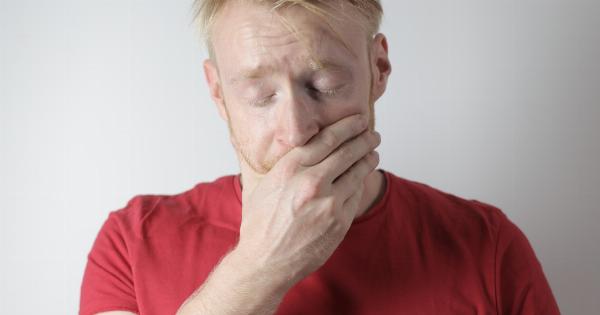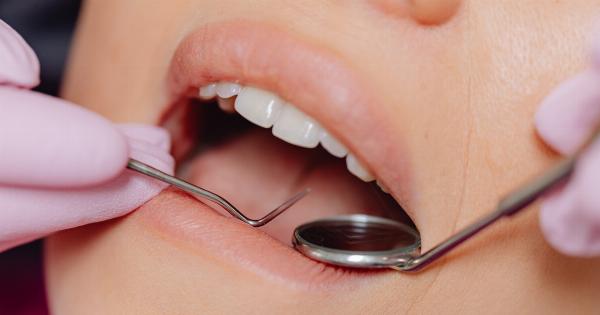Tooth pain is a widely experienced dental problem characterized by sharp, shooting, or throbbing pain that may interrupt your daily routine and cause you distress. The pain may occur suddenly or develop gradually over time.
Depending on the underlying cause, the pain can range from mild to severe, and some cases may require emergency treatment to alleviate the symptoms.
What Causes Tooth Pain?
There are various causes of tooth pain, which can usually be attributed to dental problems. Some of the most common causes of tooth pain include the following:.
Tooth Decay or Cavities
Tooth decay or cavities occur when the enamel, the outer layer of the tooth, is damaged. The decay may expose the nerve located in the center of the tooth, leading to pain that worsens as time goes by.
If left untreated, cavities can cause an infection that may spread to the root and lead to the formation of an abscess.
Gum Disease
Gum disease, also known as periodontal disease, is an infection that affects the gums and the bone that supports the teeth. It’s caused by the buildup of plaque, a sticky film of bacteria that forms on the teeth.
Gum disease can cause tooth pain, especially when the infection spreads to the roots of the teeth and causes inflammation.
Tooth Fracture or Damage
A fracture or damage to a tooth can cause tooth pain, especially when the injury exposes the nerve or pulp of the tooth. The pain may vary depending on the extent of the damage and location of the tooth.
Tooth Sensitivity
Tooth sensitivity is a common problem characterized by discomfort or pain when you consume hot or cold foods or drinks. The pain may indicate an underlying dental problem such as gum recession, enamel erosion, or an exposed root surface.
Bruxism
Bruxism is a condition characterized by the grinding or clenching of teeth, usually during sleep. The habit can cause tooth pain, especially when the grinding leads to the wearing down of the enamel or exposes the underlying dentin.
TMJ Disorder
The temporomandibular joint (TMJ) connects the jawbone to the skull and is responsible for the movement of the jaw.
A disorder of this joint can cause tooth pain, especially when the pain is felt in the jaw, near the ears, or soreness in the jaw muscles.
Sinus Infection
A sinus infection can cause tooth pain, especially when the sinuses located above the upper teeth are affected. The pain is usually felt in the upper teeth, and it can be severe or mild.
Grinding or Clenching the Teeth
Grinding or clenching the teeth, also known as bruxism, can cause tooth pain, especially when the habit leads to the wearing down of the enamel or exposes the underlying dentin.
The pain may also occur due to the pressure placed on the teeth, leading to sensitivity and soreness.
What Are The Treatments for Tooth Pain?
Treating tooth pain depends on the underlying cause of the pain. Therefore, it’s important to make an appointment with your dentist for an evaluation and diagnosis. The following are some of the treatments that your dentist may recommend:.
Filling or a Crown
If tooth decay or a cavity is causing the pain, your dentist may recommend a filling or a crown to restore the tooth.
The dentist will remove the damaged area and fill the cavity with a composite filling or porcelain crown, which can also protect the tooth from further damage. For severe cases, the dentist may recommend a root canal procedure to remove the infected pulp and save the tooth.
Root Canal Therapy
A root canal procedure is recommended when the nerve or pulp of the tooth is infected. The procedure involves removing the pulp, cleaning the canal, and filling it with a material to prevent further infection.
The dentist may also place a crown on the tooth to provide additional support and protection.
Antibiotics or Medicine
If the pain is caused by an infection, your dentist may recommend antibiotics or over-the-counter pain medication to relieve the symptoms. You may also be prescribed medication to reduce inflammation or swelling.
Tooth Extraction
If the tooth is severely damaged or infected, the dentist may recommend extraction. The procedure involves removing the tooth from the socket and may require a few days of recovery time before your mouth fully heals.
Desensitizing Toothpaste
If the pain is caused by tooth sensitivity, the dentist may recommend a desensitizing toothpaste that can help block the pain sensation and reduce discomfort.
Mouthguards or Splints
If you clench or grind your teeth, the dentist may recommend a mouthguard or splint to help protect your teeth from further damage and alleviate the pain.
Conclusion
Tooth pain can be a distressing and sometimes debilitating condition. However, with proper diagnosis and treatment, it can be effectively managed and even eliminated.
If you experience tooth pain, it’s important to seek medical attention from your dentist to determine the underlying cause and receive the appropriate treatment.



























